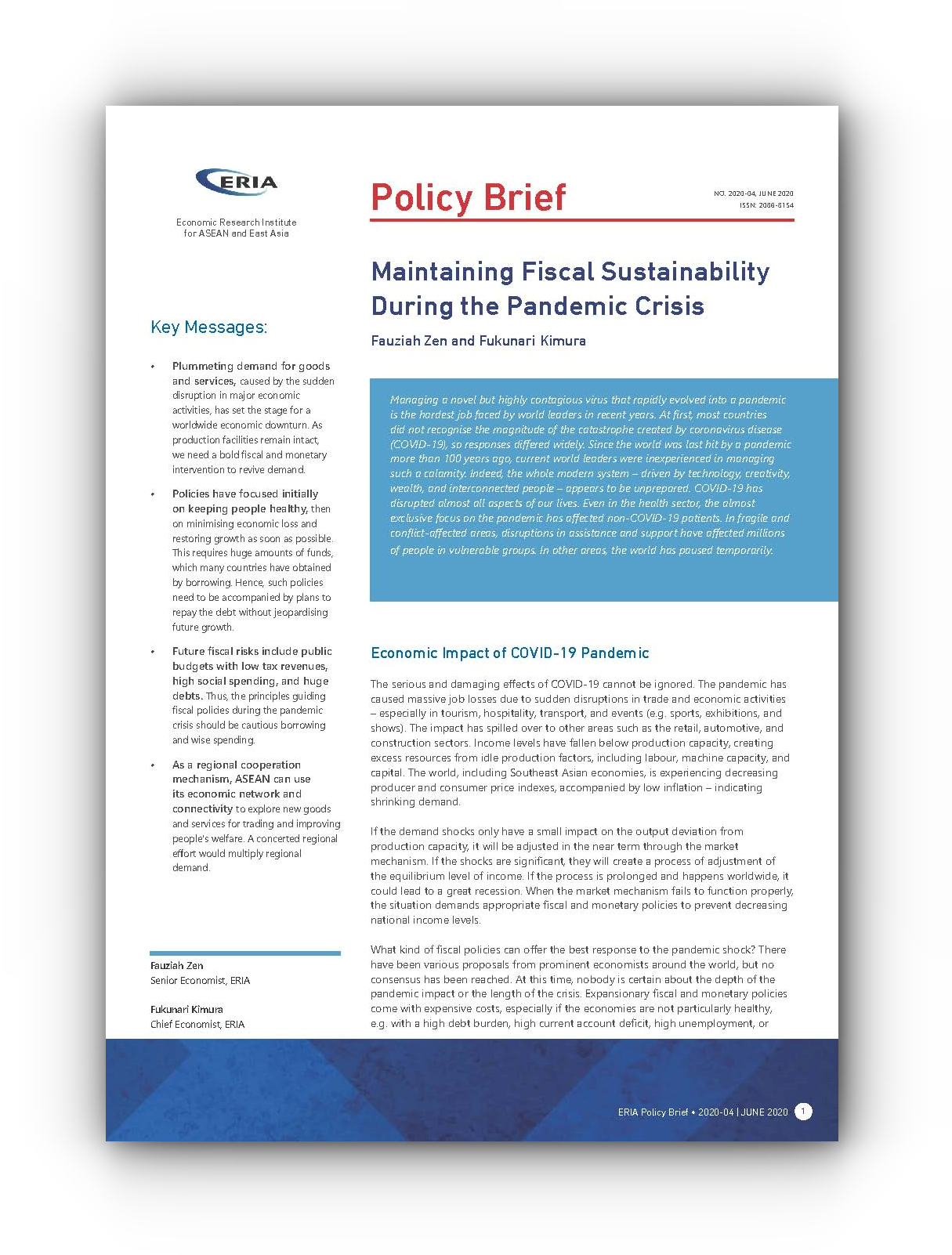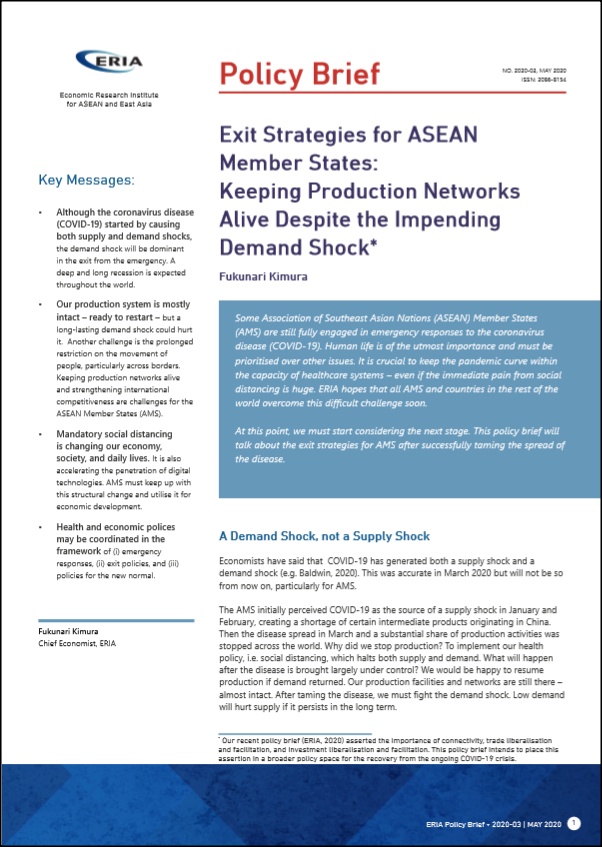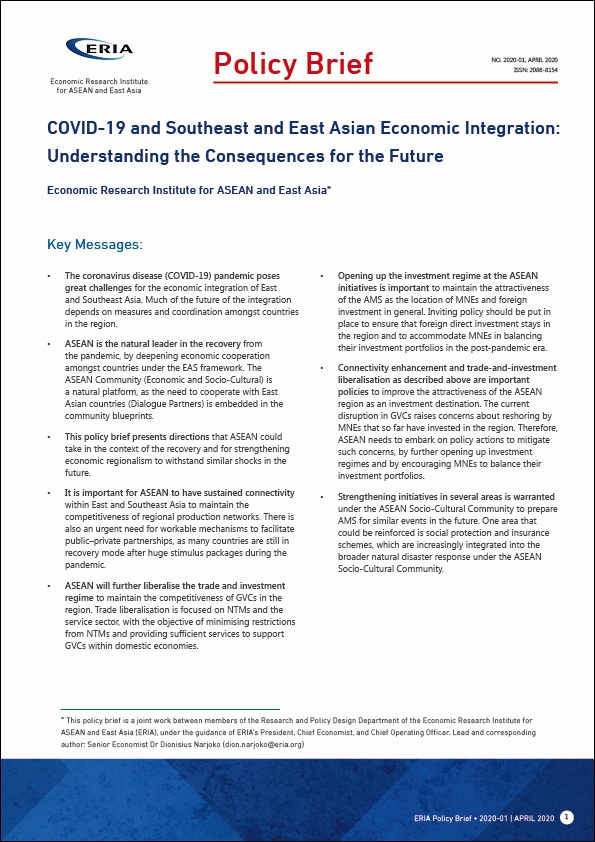Maintaining Fiscal Sustainability during the Pandemic Crisis

Date:
24 June 2020Category:
ASEAN, COVID-19, Finance and MacroeconomyType:
Policy BriefsTags:
COVID-19, fiscal, Supply ChainPrint Article:
Key Messages
- Plummeting demand for goods and services, caused by the sudden disruption in major economic activities, has set the stage for a worldwide economic downturn. As production facilities remain intact, we need a bold fiscal and monetary intervention to revive demand.
- Policies have focused initially on keeping people healthy, then on minimising economic loss and restoring growth as soon as possible. This requires huge amounts of funds, which many countries have obtained by borrowing. Hence, such policies need to be accompanied by plans to repay the debt without jeopardising future growth.
- Future fiscal risks include public budgets with low tax revenues, high social spending, and huge debts. Thus, the principles guiding fiscal policies during the pandemic crisis should be cautious borrowing and wise spending.
- As a regional cooperation mechanism, ASEAN can use its economic network and connectivity to explore new goods and services for trading and improving people’s welfare. A concerted regional effort would multiply regional demand.
Maintaining Fiscal Sustainability during the Pandemic Crisis




